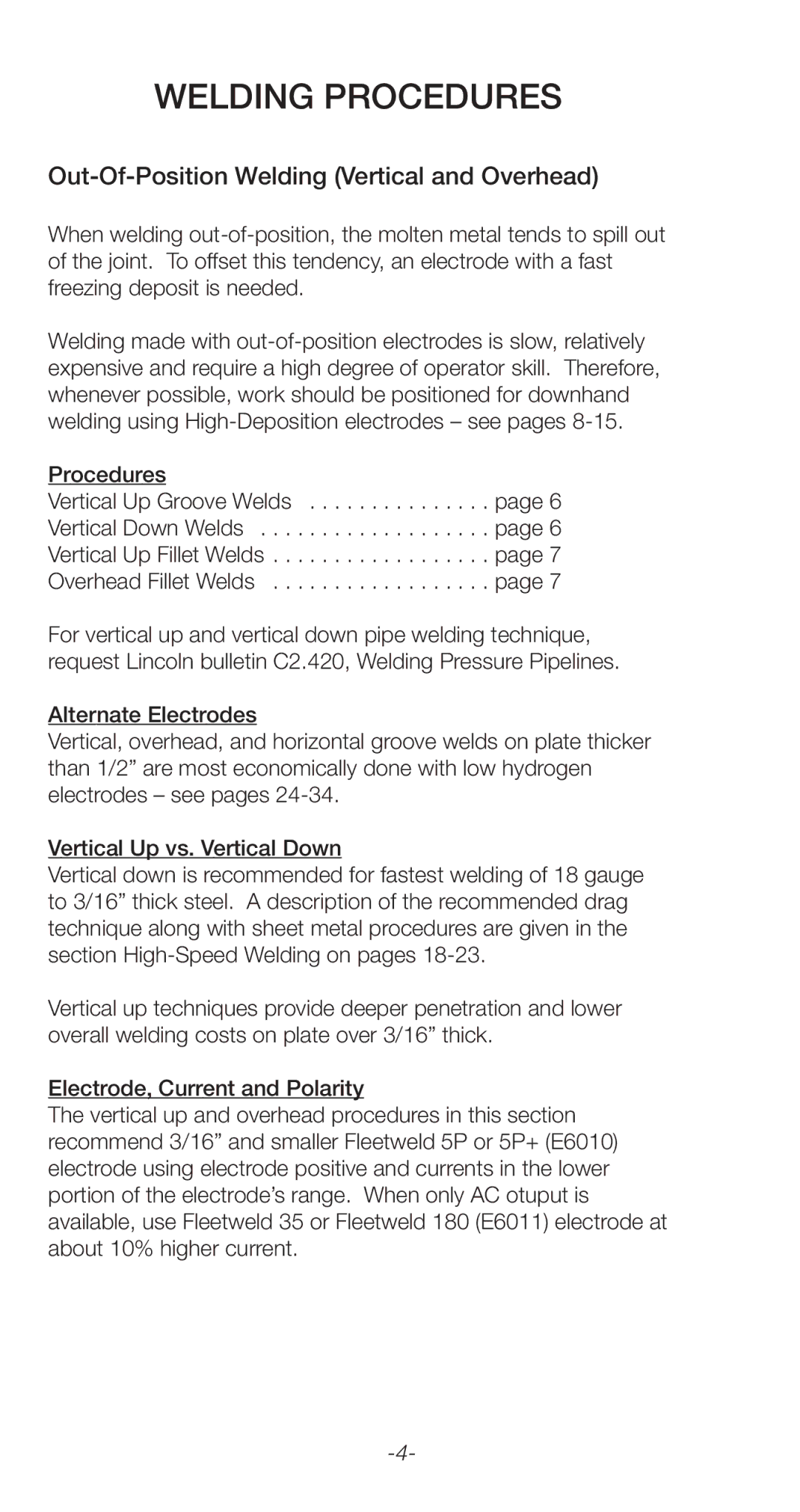WELDING PROCEDURES
Out-Of-Position Welding (Vertical and Overhead)
When welding
Welding made with
Procedures
Vertical Up Groove Welds . . . . . . . . . . . . . . . page 6 Vertical Down Welds . . . . . . . . . . . . . . . . . . . page 6 Vertical Up Fillet Welds . . . . . . . . . . . . . . . . . . page 7 Overhead Fillet Welds . . . . . . . . . . . . . . . . . . page 7
For vertical up and vertical down pipe welding technique, request Lincoln bulletin C2.420, Welding Pressure Pipelines.
Alternate Electrodes
Vertical, overhead, and horizontal groove welds on plate thicker than 1/2” are most economically done with low hydrogen electrodes – see pages
Vertical Up vs. Vertical Down
Vertical down is recommended for fastest welding of 18 gauge to 3/16” thick steel. A description of the recommended drag technique along with sheet metal procedures are given in the section
Vertical up techniques provide deeper penetration and lower overall welding costs on plate over 3/16” thick.
Electrode, Current and Polarity
The vertical up and overhead procedures in this section recommend 3/16” and smaller Fleetweld 5P or 5P+ (E6010) electrode using electrode positive and currents in the lower portion of the electrode’s range. When only AC otuput is available, use Fleetweld 35 or Fleetweld 180 (E6011) electrode at about 10% higher current.
